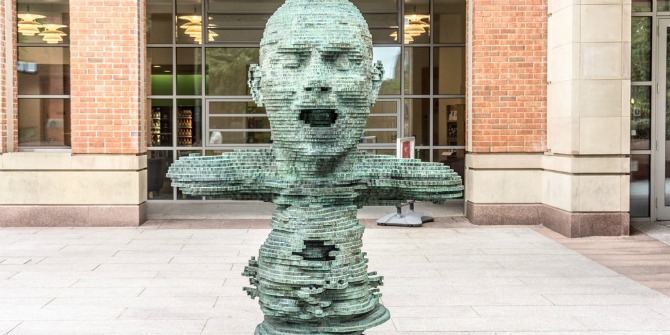 A new set of academics are embracing YouTube and blogging sites to share their passion with the public and make an impact with their research. Here Amy Mollett looks at two academics who have made the headlines recently: Professor Martyn Poliakoff and his success with science videos, and Professor Conor Gearty and his project on human rights debate.
A new set of academics are embracing YouTube and blogging sites to share their passion with the public and make an impact with their research. Here Amy Mollett looks at two academics who have made the headlines recently: Professor Martyn Poliakoff and his success with science videos, and Professor Conor Gearty and his project on human rights debate.
As Professor of Chemistry at the University of Nottingham, Martyn Poliakoff has quickly become an internet sensation thanks to a series of YouTube videos in which he presents key ideas in science learning. Taking viewers on a journey through thePeriodic Table, the chemistry of viagra, and the history of the Bunsen burner, Poliakoff and his colleagues have now racked up almost 50,000 subscribers on their periodicvideos YouTube channel.
 Earlier this year Poliakoff co-authored an article entitled ‘How to measure the impact of chemistry on the small screen‘, in which he highlight the unexpected difficulty of measuring the ‘impact’ of outreach activities that some academics are now embracing in order to explore new ways of engaging with the world. At the time of the article’s publication, the channel had a 90 per cent retention rate among their subscribers, who outnumbered the UK Royal Family’s channel and the Chelsea Football Club channel.
Earlier this year Poliakoff co-authored an article entitled ‘How to measure the impact of chemistry on the small screen‘, in which he highlight the unexpected difficulty of measuring the ‘impact’ of outreach activities that some academics are now embracing in order to explore new ways of engaging with the world. At the time of the article’s publication, the channel had a 90 per cent retention rate among their subscribers, who outnumbered the UK Royal Family’s channel and the Chelsea Football Club channel.
More good news came for Poliakoff this week though, as he will soon take on the role of Foreign Secretary of the Royal Society, a post which dates back to 1723 and predates the post of Foreign Secretary in HM Government by sixty years. Poliakoff will now be responsible for building relationships around the world, particularly with other scientific academies, and ensuring that British Science and the Royal Society is recognised and promoted internationally.
But chemists are not the only ones using YouTube as part of new methods of public engagement and making an impact in society. At LSE, Professor Conor Gearty last year launched The Rights’ Future: a collaborative online project exploring the history, development and current success of the human rights ideal, inviting the public to engage in the topic. An essay was posted each week for twenty weeks, alongside video posts and remarks on current developments in human rights issues.
 The success of the project was overwhelming, with readers replying with dedication and commitment, critically engaging with topics such as the power of unionisation, the place of the UN, the rights of animals and trees, and the merits of group rights.
The success of the project was overwhelming, with readers replying with dedication and commitment, critically engaging with topics such as the power of unionisation, the place of the UN, the rights of animals and trees, and the merits of group rights.
In a blog post for the LSE Politics Blog, Professor Gearty noted that academic discussion is now occurring outside of traditional forms such as printed essays and journals, and while these traditional forms still have their merits, a thorough embracing of new platforms is necessary for the positive survival of academic discussion and debate.
“There seems to be a real desire for new ways of expression and discussion, and a need for immediate engagement with human rights issues as they unfold by the hour. You can start trending on Twitter about a human rights subject and within a few hours be part of a discussion with hundreds of people, rather than waiting months for the publication of something in an academic journal or publication.”
—————————————————————————————————————————————–
If you are interested in academic blogging and the future of online impact, you can find out more at the LSE Impact Conference on Monday 13th June.
The event is free, open to all, and will look at a range of issues surrounding the impact of academic work on government, business, communities and public debate. We will discuss what impact is, how impacts happen and innovative ways that academics can communicate their work. Practical sessions will look at how academic work has impact among policymaking and business communities, and how academic communication can be improved and how individual academics can easily start to asses their own impact.
The event is free to attend but registration is essential. Please contact the PPG team via Impactofsocialsciences@lse.ac.uk and head to the Impact Conference page.








1 Comments